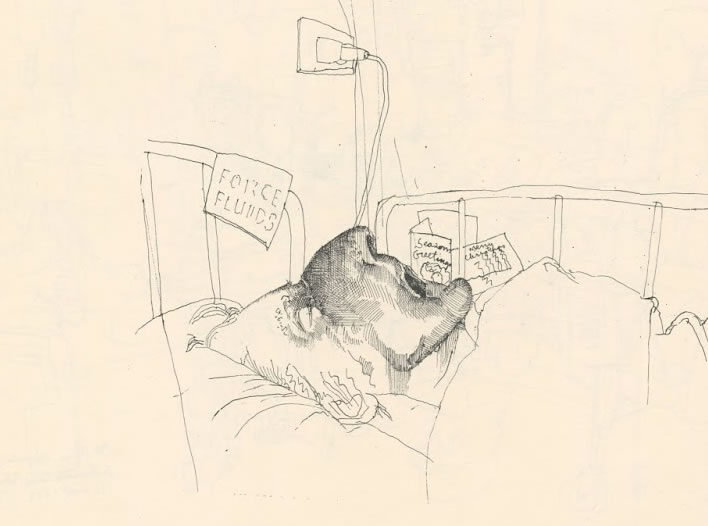Oiling the Swiss paywall media
Posted by Mad Mitch on UTC 2020-05-01 10:44
Swiss media surfers may have noticed in the last few months that more and more online content has been disappearing behind paywalls.
This is is a pre-emptive response to a proposal by the minister currently responsible for the media, the left-wing pianist Simonetta Sommaruga. It will be put before parliament this summer, from whence it will trudge slowly in some form into law.

Federal President, Simonetta Sommaruga 2020. Image: ©Beat Mumenthaler.
We right-wing, free-market, laissez-faire thugs no longer waste our limited intellectual resources wondering why a government needs a 'media minister' – we lost that battle years ago. Sommaruga is also the minister in charge of writing the suicide note setting out Switzerland's green energy future, so our expectations of getting intellectual rigour from her or her department of hand-picked eco-loons are zero.
Fifty years ago, Switzerland was top of the world leader board for newspaper readership and newspapers published. Every town, canton and region had its local newspapers and some of them had also a national readership. The long tradition of newspapers being available to read in coffee houses, restaurants and pubs reinforced their presence. Most newspapers, particularly those with national reach, were awash with cash.
Paging Mr Van Winkle! How different the situation is today!
In the intervening years technology has swished its scythe through all these comfortable, rich and apparently immutable businesses. The readerships of their print products have declined steadily and steeply, their owners have been forced to set up websites and stock them with content from their dead-tree offerings. In a country of under nine million inhabitants residing in 26 mini-countries and with four languages, the readership cake has to be sliced thinly.
But the sticky fingers of official Switzerland have always been discreetly involved in newspaper subsidies. Many newspapers have sweetheart deals with local authorities if they take on the role of being the local newspaper of record. A steady flow of recruitment advertising for public appointments can be expected, too. The postal service offers free or heavily discounted distribution, for which taxpayers pick up the bill.
The helping official hand is not enough. Advertising in the dead-tree pages is disappearing rapidly. Content-light, free newspapers have siphoned off advertising from their content-heavy competitors. Online advertising was thought to be the business model for the online offerings, but ad-blockers have put paid to that.
We thugs have no sympathy when we read the grumbles of websites suffering from ad-blockers. The advertising market is a market just like any other and consumers are merely responding to what is on offer. Websites which publicly pledged only to display well-behaved, non-distracting ads would soon find an audience willing to allow them past their ad-blockers. The popularity of ad-blockers shows that for most surfers the madly flashing animations are a distraction too far, let alone the tricks advertisers use to track surfers across the web.
Web surfers are savvy enough to appreciate that someone, somewhere has to make some money in order to keep the online show on the road – they just wish to protect their eyes and brains from the perceptual assault of modern online advertisements.
So the current situation in Switzerland (as almost everywhere else) requires that which is always required by technological change: adaptation through lateral, innovative thinking. The process is quite Darwinian – adapt or be extinguished. The last thing that should be done is to view technological change and the resultant social change as a challenge needing to be corrected by government. This idea has been the refuge of lost causes down the centuries.
Thus the dirigistes, mercantilists and social engineers in the Swiss government – and there are an awful lot of them – are about to open a new money pot aimed at preserving 'media diversity'. We free-market thugs nod our heads sagely and lean back to wait for the inevitable shambles there will be when goody-two-shoes meets the Law of Unintended Consequences – as it always ultimately does.
The government, which has been giving money in large wedges in subsidies for other media lost causes – state broadcasting and print media – is not only planning to increase these subsidies appreciably but will now throw 30 million Swiss Francs (the number is not much different in USD, GBP or EUR at the moment) at online media. Not just any online media, though: only online media which operate paywalls will have access to the money pot.
It's a strange way of encouraging 'media diversity', giving money to those sites which restrict access to their content. Even a brief reflection will reveal how misguided this measure is. Unintended consequences – let us count the ways.
Instead of diversity, the online media market in Switzerland will consist of two classes: 1) big websites with paywalls that can count on taxpayer money and 2) small websites attempting to broaden their reach and living off whatever advertising or donations they can pick up. The measure does nothing to help them.
The Law of Price and Demand has not been suspended either. No sane person thinks that putting up a paywall will increase readership – on the contrary: this measure is bound to reduce access to professionally produced content. After all the whining we have heard recently on the theme of professional journalists as the only wielders of the sword of truth, the task now seems to be to restrict access to the products of their great brains in order to continue to pay them what they think they are worth.
The access to a diversity of information sources will inevitably be restricted. Two years ago, for example, in the pursuit of a particular issue or story, surfers could visit a broad range of sites, from the national to the local, and receive a correspondingly broad range of insights and information. As far as the consumer is concerned, the proposed measures will do the opposite of encouraging media diversity.
There is currently no single online media offering in Switzerland to which your author would even consider subscribing, let alone half a dozen. Unlike the reader of a printed newspaper or magazine, who consumes it as a totality – from front to back and probably all of its sections – the online consumer is (or should be) more eclectic, visiting many more websites and selecting only specific articles. This behaviour is completely contrary to the idea of a subscription to a single website, which is why it is bound to fail.
Under the proposed subsidy scheme, the lower a website's subscribed readership, the more money it will proportionately receive. Only a deeply socialist mind could think that that perversity might be an incentive to success.
In effect, those websites which take the government's shilling and throttle their readership with a paywall will find themselves in a classic 'benefits trap' in which the more money they get from readers, the proportionately less government money they will receive.
Websites which receive 'voluntary contributions' from their readers will also be eligible for cash, but on what basis and in what proportion government money will be allotted to them is still a mystery. What about sites supported by one or two big spenders? Will institutional backers start to make their donation as named 'readers'?
Thinking aloud: do private individuals who put their own money into running websites that allow them to take their own hobby horses out for a canter count as 'financial supporters'? They certainly increase 'media diversity'.
It requires some contorted thinking, too, to imagine that making media websites dependent on government money will have no influence on their content, leaving them sturdily independent. That cash will be just another brick in the wall.
Those of us who will soon be tying up our white ties and brushing off our tails for the founding meeting of PURT, the Party of Unreconstructed Rightwing Thugs ('an atmosphere that simply reeks with class', BTW) wonder whether our manifesto pledge to end all subsidies and in particular media subsidies will get the traction it deserves in the newly paid-for media.
We shall also have to wait and see what caveats are smuggled into the final text which make government money conditional on websites not being 'unpleasant' in any way about said government or the heroes who run it or the doctrinal orthodoxies on which it rests. No Swiss government wants to end up funding a climate sceptic website, for example.
But we suspect that this government action has been deliberately mislabelled. It is not about increasing media diversity at all – that has been increasing quite nicely on its own, without pieces of silver from the dirigistes in the government.

'Force fluids' indeed! Image: Alan E. Cober, Season's Greetings.
No, it appears to be a Canute-like exercise to keep the good old media landscape in Switzerland, anno 1970, by putting it on an expensive life support machine, when it should really have its false teeth removed, all fluids withdrawn and have a 'do not resuscitate' sign hung on the end of the bed.
A new media age dawned about twenty years ago. Switzerland should have the courage to embrace it and its real diversity. Ms Sommaruga, tear down those paywalls!
0 Comments UTC Loaded:
Input rules for comments: No HTML, no images. Comments can be nested to a depth of eight. Surround a long quotation with curly braces: {blockquote}. Well-formed URLs will be rendered as links automatically. Do not click on links unless you are confident that they are safe. You have been warned!